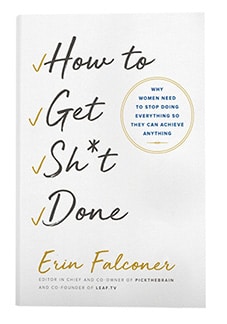Procrastination is the enemy. Everyone knows it, and that goes for the stubborn soul who insists that the white-hot pressure of a last-minute completion makes his or her work better. It does not.
Procrastination is fighting a war against your momentum, your productivity, and your sanity.
The Easy Target
Everyone procrastinates, but writers are especially afflicted. We all do it for different reasons: there are those crazy busy periods, overbooked with projects to the extent that we feel forced to push assignments to the next day, next week or next month.
Then there are those jobs that we don’t only want to put off, but avoid altogether. There are also projects that bore, projects that don’t pay, and projects that insult. Maybe you fear a lack of expertise in a topic area, which creates anxiety about the end result.
Freelance writers tend to put off starting a job when the client’s instructions are so vague that I hardly know where to begin anyway. Let’s face it, instructions clouded by poor communication, language barriers, time zone delays, or even the client’s own confusion can cause a writer to move on to something less convoluted, where we’re more certain of our own success.
Finally, we might delay the writing activity that requires intense concentration because it’s so hard to find that single-minded, “sweet spot” state of mind necessary for crafting the inspiring opening sentence.
Put simply, procrastination brings unnecessary stress to daily life. Fortunately, it’s easy to combat, but it’ll take applied effort to weed it out for good.
Searching for the Remedy
What has to be figured out first, is what triggers your procrastinator self. Boredom? Confusion? Disappointment? Be adequately in tune with yourself, so that you might sense the signals and then ward off the inevitable delay (in starting and finishing).
Next, consider the value of being obligated to an appointment, then make one with yourself! Time blocking is an essential practice that keeps a writer from wandering aimlessly across various jobs, and it forces focus on one project at a time, for a limited period. Need to create 500 words of content by 5pm? Dedicate a healthy span of minutes by marking your calendar: once it’s set, there’s a real obligation in play.
Another method to force focus is to disconnect from wifi. (Try it and believe.) With multiple browsers open (at least one of which is likely social media), there’s no way to avoid distractions from a job at hand. It’s amazing how the “blinders” created by canceling out web displays ups the productivity quotient (and keep you from resorting to procrastination).
How about an attitude adjustment via re-evaluation of existing projects? Spend 5 minutes re-assessing each current assignment, with the goal of identifying even the smallest nugget of interest or engagement. Then, throw questions at each assignment: start with the basics of “why, when, who, what” then move to more in-depth “attacks” like “For what?” and “To what end?” I like to ask a job how it’s going to lead to the next job; after all, who isn’t in hot pursuit of more work?
Here’s a tough one: take stock of how your life habits sabotage your work. Then, change them! Commit to this short-term goal: for one week, get up 30 minutes earlier than normal. I guarantee that the relief you feel from padding the work day with 30 precious minutes will motivate you to become more of a morning person. Besides, sleeping in is just another form of procrastination, yes?
One last vital suggestion is to nail down the job parameters. Once I’m truly clear on basics of content, purpose, and deadline, even the most objectionable project becomes less daunting—and that realization prompts me to stop procrastinating and to go to work!
The True Practice Session
The ultimate cure for writer’s procrastination is simply to WRITE, so it’s time to practice what I preach. Follow through—and that means now, not later.
First, move somewhere with few distractions and have at the ready your favorite way to write (keyboard, pencil and paper, whatever). Start with the letter “A” and work your way through the alphabet by stating a word, out loud, that begins with each letter (it’s all about action, so actually speaking is valuable).
It might go something like this: “Art, ball, cane, dart, envelope…” Wait until you sense a connection between two spoken words, then stop and write 4 full sentences about it, noting that no matter how small the association may be, there’s material there (otherwise your brain wouldn’t have handed you those particular words in sequence). Afterwards, pick up where you left off (“fan, gargoyle, hijab”) and repeat the exercise. In the spirit of time blocking and forced focus, keep at it until you’ve been writing for… as long as you can.
Writing may be both a pain in the neck and an enlightening, enriching experience. Use the tips and go for the latter!
———————-
Regine Ward is a freelance writer/blogger and tutor at Do My Homework Online. Her main values are lifelong learning, helping people become the best versions of themselves and constant self-improvement. In her free time Regine travels, reads, drinks coffee and bakes cookies. Find her on Twitter or Facebook.
Erin shows overscheduled, overwhelmed women how to do less so that they can achieve more. Traditional productivity books—written by men—barely touch the tangle of cultural pressures that women feel when facing down a to-do list. How to Get Sh*t Done will teach you how to zero in on the three areas of your life where you want to excel, and then it will show you how to off-load, outsource, or just stop giving a damn about the rest.





最近では、本物の女の子のように見える本物の人形を手に入れるだけでなく、同じような喜びを与えることができます。 それは本物の女の子のように感じます、それは喜びを刺激することができる様々な楽器を持つことができます、そしてそれのいくつかは性的関係の大きな喜びに不可欠であるうめき声もすることができます。 ダッチワイフ https://yourdoll.jp
에볼루션코리아
273CWXoyD~}}
에볼루션카지노
803YKqMsR?”<
에볼루션바카라
806FIDqfd=._
에볼루션룰렛
036PvaktA>”>
에볼루션블랙잭
825ManZru;`”